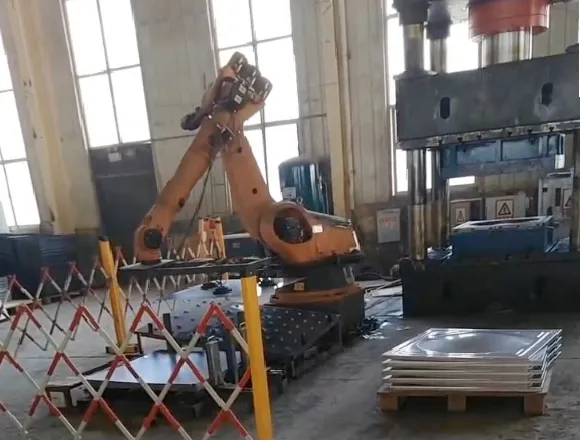loading...
- No. 9, Xingyuan South Street, Dongwaihuan Road, Zaoqiang County, Hengshui, Hebei, China
- admin@zjcomposites.com
- +86 15097380338
- Welcome to visit our website!
Innovative Solutions for FRP Deck Panels in Construction Applications
Understanding FRP Deck Panels A Comprehensive Overview
Fiber Reinforced Polymer (FRP) deck panels have emerged as a revolutionary solution in the construction and architectural industries. Known for their remarkable strength-to-weight ratio, durability, and resistance to corrosion, FRP deck panels are quickly replacing traditional materials in various applications, including bridges, parking structures, and building roofs. This article will explore the benefits, applications, and considerations for using FRP deck panels in modern construction.
What are FRP Deck Panels?
FRP deck panels are composed of a polymer matrix reinforced with fibers—typically glass or carbon fibers. This combination yields a lightweight yet extraordinarily sturdy material, making it ideal for various structural applications. One of the most significant advantages of using FRP is that it is non-corrosive, which means that it can withstand harsh environmental conditions without deteriorating. This property is particularly beneficial in settings like chemical plants or coastal areas where traditional materials may suffer from salt exposure and chemical reactions.
Key Advantages of FRP Deck Panels
1. Lightweight Construction One of the most prominent features of FRP panels is their lightweight nature. Being significantly lighter than steel or concrete means that FRP panels can reduce the overall load on a structure. This attribute not only simplifies transportation and installation but also contributes to reduced foundation requirements, ultimately minimizing construction costs.
2. Corrosion Resistance A defining characteristic of FRP is its ability to resist corrosion. Unlike metal, which can rust and degrade over time, FRP's inherent properties allow it to endure exposure to moisture, chemicals, and even extreme temperatures. This durability ensures a longer lifespan, reducing the need for maintenance and replacements.
3. Design Flexibility FRP is highly versatile in terms of design and can be manufactured in various shapes, sizes, and colors. This flexibility allows architects and engineers to create innovative designs that meet both functional and aesthetic requirements without compromising the material's integrity.
frp deck panels

4. Sustainability As the world increasingly focuses on sustainable construction, FRP materials stand out. They can be produced using recycled materials and are recyclable themselves at the end of their lifecycle. Furthermore, the energy required for production is often lower than that required for traditional materials, contributing to a smaller carbon footprint.
Applications of FRP Deck Panels
Given its numerous advantages, FRP deck panels are employed in a wide array of applications. They are commonly used in the construction of
- Bridges FRP panels can provide sufficient strength and rigidity while being lightweight, making them ideal for new bridge constructions and retrofitting existing ones. - Walkways and Platforms In industrial settings, FRP panels are used to create safe walkways and platforms that resist slipping and corrosion, ensuring worker safety. - Parking Structures The lightweight nature of FRP reduces the required structural support, creating cost-effective and efficient parking solutions.
Considerations for Implementing FRP Deck Panels
While FRP deck panels offer many benefits, there are considerations to keep in mind. The initial cost can be higher than traditional materials, although this is often offset by reduced maintenance and longer life expectancy. Additionally, careful consideration must be taken during installation, as improper handling can lead to damage.
In conclusion, FRP deck panels represent an innovative and efficient solution for modern construction challenges. With their multiple advantages, including lightweight properties, corrosion resistance, design flexibility, and sustainability, they are well-positioned to play a crucial role in the future of construction. As more industries recognize the benefits of FRP, we can expect to see its usage becoming increasingly prevalent, paving the way for safer, more durable, and environmentally friendly structures.
-
The Rise of FRP Profiles: Strong, Lightweight, and Built to LastNewsJul.14,2025
-
SMC Panel Tanks: A Modern Water Storage Solution for All EnvironmentsNewsJul.14,2025
-
GRP Grating: A Modern Solution for Safe and Durable Access SystemsNewsJul.14,2025
-
Galvanized Steel Water Tanks: Durable, Reliable, and Ready for UseNewsJul.14,2025
-
FRP Mini Mesh Grating: The Safer, Smarter Flooring SolutionNewsJul.14,2025
-
Exploring FRP Vessels: Durable Solutions for Modern Fluid HandlingNewsJul.14,2025
-
GRP Structures: The Future of Lightweight, High-Performance EngineeringNewsJun.20,2025
